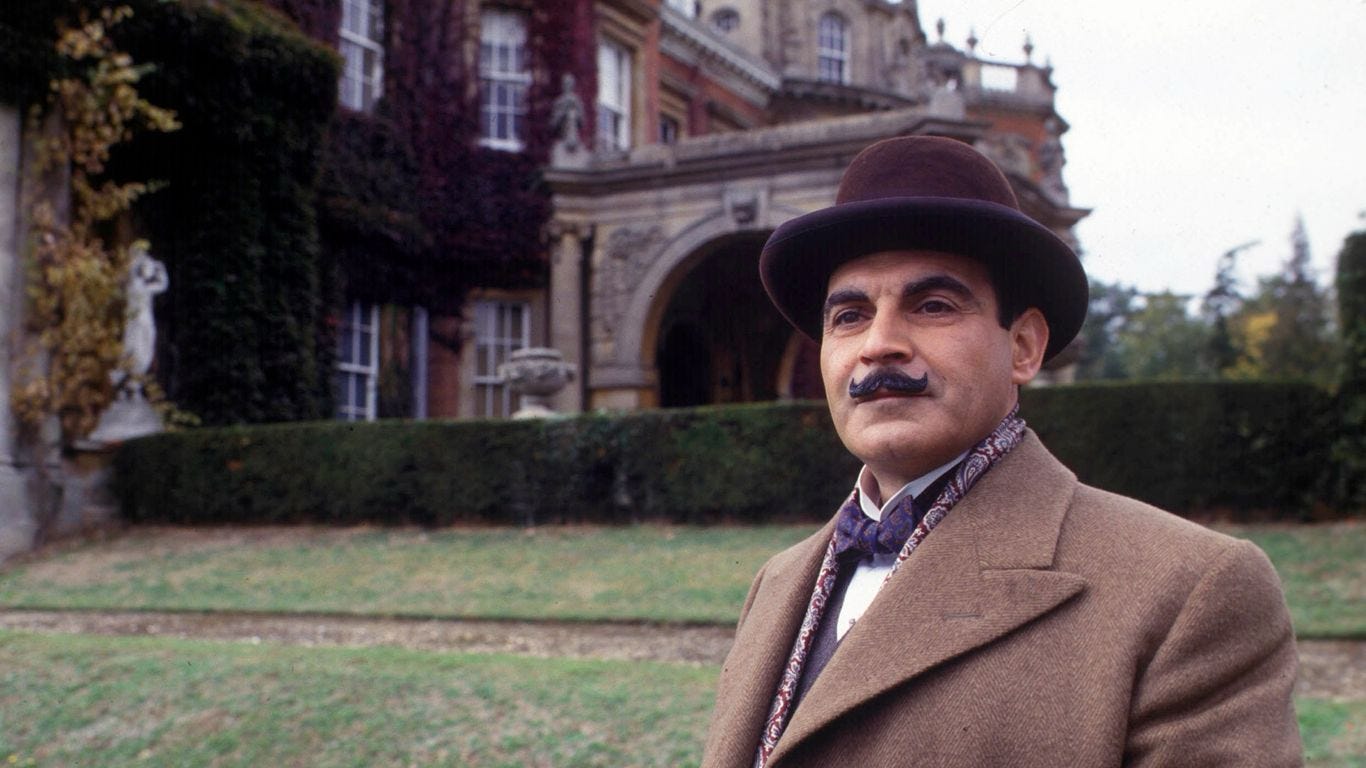Commonplace Quote:
“Story is a way to say something that can’t be said any other way.”
—Flannery O'Connor
Last week, I kicked off a series on identity—but today, we’re hitting scheduled pause for a good cause: my monthly Roundup! Don’t worry, we’ll jump right back into our identity series next week, diving into how the garden narrative helps us understand who we are.
If you’re new here, my monthly Roundup is a chance to spotlight a particular genre and share a few favorites. This month? We’re looking at detective stories.
In Defense of Detective Stories
Now, full honesty: detective stories aren’t usually the first thing I reach for. They rarely make my personal top lists. But at the same time, I have to tip my hat to them—because they matter more than they get credit for.
Good detective stories show us something about ourselves. In the best ones, even when the crime seems unsolvable, the evidence is sitting right there in plain sight. A truly great story leaves you, at the end, thinking, “How did I miss that?”
And really—that’s life. The truth is often right in front of us; we don’t see it.
Things get even more interesting when you start comparing different styles of detective stories. Take Sherlock Holmes. Sherlock’s world runs on sensory details and hard evidence. Tune your senses properly, he tells us, and the truth will reveal itself.
But then you have someone like Agatha Christie, who flips the whole thing on its head. In her novels—whether it’s Miss Marple or Poirot—the old-school detectives who rely only on physical clues usually come up short. Christie shows us that it’s not just about what people do, but why they do it—their fears, their lies, their little self-deceptions.
And if you know me, you know this is the kind of thing that gets me jumping up and down: our senses can deceive us. Evidence matters, sure. But an over-reliance on “what you can prove” can be just as misleading as ignoring it altogether.
So today’s post is a little tribute to a fantastic genre that reminds us how complicated the search for truth really is.
Below, I’ve listed a few of my favorite detective stories—and I would love to hear some of yours! (And yes, Dorothy Sayers is still on my “to be read” list. I’ll get there someday.)
Let’s swap recommendations!
My Top Detective Novels
Murder on the Orient Express by Agatha Christie (and many others by her! I also love the Poirot TV series on Amazon.)
Brat Farrar Josephine Tey
The Moonstone by Wilkie Collins
The Cormoran Strike series by Robert Galbraith (with discretion. Robert Galbraith is J. K. Rowling’s pseudonym, but this series is NOT for children.)
Death in Cyprus by M. M. Kaye
Recent Substack Notes:
Until next time!





Oh, forgot to say that I like Chesterton’s The Man Who Was Called Thursday. It was a little hard to get into but it ended up being really good!
I don’t have too much to add here, but I’m excited to check out everyone’s recommendations! I love Christie and Sayers (the Harriet Vanes are prob my favorite) and Sherlock Holmes! I enjoyed the first couple Maisie Dobbs but not so much the later ones. A great kid’s mystery series is the Mysterious Benedict Society. Also, I’ve enjoyed all the many, many (😂)movie and tv renditions of Agatha Christie’s stories.